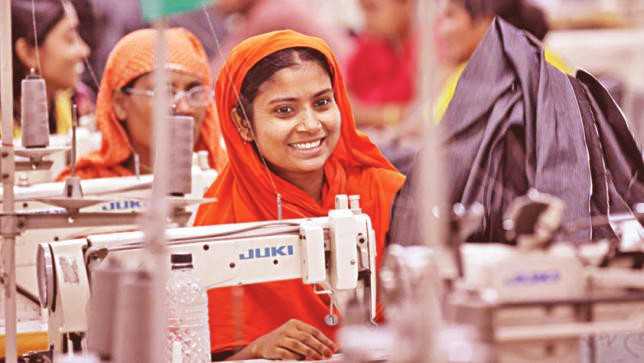Bangladesh urged to avoid worker abuse on garment industry

Image collected
Workers found in Bangladesh’s garment industry face increased threats, intimidation and even physical and sexual abuse, according to a written report for an influential U.S. Senate committee that urged authorities to accomplish more to safeguard labor rights.
The study for america Senate Committee on Foreign Relations found that while factory safety had improved because the 2013 Rana Plaza disaster, Bangladesh was backsliding on workers’ rights.
“Today, many of Bangladesh’s ready-made garment factory buildings are structurally safer, however the workers inside aren't,” said the article, released by the Democrat Senator Bob Menendez.
“Labor privileges have declined precipitously in recent years as union organizers contend with pressure on freedoms to associate, organize, and demonstrate. Worse, employees are staying abused - verbally, physically, and sexually.”
A good senior official with the labor ministry denied there had been any backsliding on labor legal rights, but said there is room for improvement.
Bangladesh, which ranks in back of only China as a good supplier of clothes to Western countries, depends on the garment sector for a lot more than 80 percent of it has the exports, and about 4 million jobs.
Many leading Western fashion brands produce clothing on Bangladesh and the industry has been in global scrutiny since the Rana Plaza factory complex collapsed seven years ago, killing 1,134 people.
“We want to use the international network,” explained K.M. Ali Azam, secretary at the Ministry of Labor and Career, promising to truly have a “detailed debate” with factory owners on the report’s findings.
“We could have a debate regarding this statement and focus on including the suggestions that are conceivable to add,” he told the Thomson Reuters Base on Monday.
U.S. experts traveled to Dhaka in July to talk with Bangladeshi garment personnel, union activists, government officials and civil contemporary society representatives for the analysis, published last week.
They found union leaders faced threats and intimidation, hampering their capability to investigate claims of abuse, almost all of which were from women workers who make up a lot of the workforce in Bangladesh’s garment industry.
Azim said there have been no recent reviews of major abuse of women workers.
The analysis comes amid concern over the ending on, may 31 of a mechanism led by European fashion brands that is credited with bettering working conditions in a lot more than 1,000 factories in Bangladesh.
It'll be replaced by a private monitoring entity, RMG Sustainability Council, which is made up of factory owners, union leaders and company owners.
Source: https://www.reuters.com
Previous Story
- Commerce minister fears export fall due to coronavirus...
- Bangladesh's key garments sector hits a wall with...
- Asia's garment industry sees lay-offs, factories closing because...
- Subsequent challenges of Bangladesh's RMG
- Has Bangladesh made progress on the rights of...
- Cotton and yarn update
- Is denim offering new trusts in Bangladesh's clothing...
- Battling style squander with digitized information framework